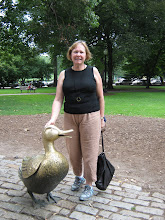Wow, two weekends in a row the Sydney Morning Herald has something to say about Australia's falling literacy rates and the drop in numbers of people reading to their children. As a grandparent, Richard has worked out how to entertain children, read to them and make it a memorable experience so they want the experience repeated. Richard Glover in the Sydney Morning Herald today (12th July 2025 Subscriber link)
Richard's grandchildren are indeed lucky to have someone who wants to read to them, enjoys reading to them, knows what to read to them and better even still, does voices for the characters. Not everyone is good at voices, but everyone can 'cuddle up and share a book' ie. read and talk about it, what you like, don't like, which character would you most like to be etc. Richard asks 'Who doesn't like reading books to kids?' It would appear that many adults either haven't had this pleasure or are choosing to forgo it.
Two days ago I attended a local Lifeline Book Fair with two other teacher librarians... heaven for us and so many others who were there early in the morning. There were people with bags full of books so books are not 'dead'. I watched the people in the children's section. There was a young mother collecting every Peppa Pig and Maisy title she could find. I am so pleased she is obviously reading to someone, but I did want to ask her some questions. Why collect Maisy, but leave other Lucy Cousins' books in the box? Was it because she had seen these on television? I wanted to offer suggestions that would expand her reading choices. There were several Jill Murphy and Martin Waddell books in the box that she skipped over, and which would have been great choices. Who doesn't love Five Minutes' Peace and Peace at Last by Jill Murphy or Can't You Sleep Little Bear? and Owl Babies by Martin Waddell?
There were families where the mother and kids were looking for a particular author or series of books and the Book Fair is very good for this. They group the books to make it much easier for all and it keeps it tidier. If one book in a series is lost from the school library, I look for a replacement at the Book Fair.
What else do I buy? Mainly I buy books for my friends and sisters who are grandmothers who like to read with their grandchildren. They have a box of books at their homes for when the children visit and they say I always give them great books that hold the children's attention. That is because I have book knowledge, well honed over years of study, teaching and being a teacher librarian. I believe reading to children is of paramount importance so I see spending money at a book fair as being one way to ensure children get to have books in their hands and an enabling adult to share them.
Long ago, I taught trainee primary school teachers at university and teachers in schools about literacy and how to teach reading and writing. I always started a lecture or a session by reading a children's book to them. It was a way of making sure they knew about that chosen book. It worries me that undergraduate teachers have so little time in their course to read books for themselves that a knowledgable mentor has recommended.
Reading with children is precious time, time that you will not get back! Someone gave me a fridge magnet when my children were small that in essence said something to the effect that your children will only be children for a short time, but the dust and housework will always be there, so make the most of your time with them and worry less about what you didn't get to do. Yes, you may be asked to read the same book over and over because it is a favourite, but you have to clean over and over too and it is not a favourite. Perhaps teachers need to think like this too, before they give up their class serial or picture- book-a-day routine, because if students are not being read to at home than we need to look for ways to make sure they are read to, catch the 'reading bug' and go on to be readers who not only can read, but choose to read and then pass that superpower onto their children and grandchildren as Richard Glover is doing.
As time-poor adults we have to make choices, we have to prioritise what we think is important and we have to advertise how pleasurable reading aloud is by doing it well and often. Visit the library. The school I teach at lends books to parents and grandparents, but if your school doesn't visit the local council library. They will steer you in the right direction. There are so many parent reference books to help with this also. They have recommended reading lists!
• Raising Readers by Megan Daley
• Reading Magic by Mem Fox
• 7 Steps to Get Your Child Reading by Louise Park


